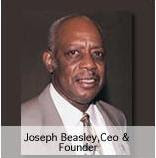Not-So-Trivial Pursuit Of A United States Of Africa


Some board games aim to improve your general knowledge, others are just fun. A Senegalese entrepreneur is hoping his new game promoting African unity will be both.
Game designer Salif Tidiane Ba wants to succeed where the continent's leaders have so far failed: to create a United States of Africa.
On a recent day, surrounded by children at his cramped headquarters in the Senegalese capital, Dakar, Ba shows off his latest venture: Jekaben, which means "let's unite and work together" in the local Bambara language.
Ba is passionate about Africa and says the game's purpose is to educate players about the continent and steer them toward achieving the United States of Africa.
The children demonstrate how the elaborate game is played.
Part Monopoly, part Trivial Pursuit, the game centers on a colorful board with a green and white map of Africa in the middle. A player's goal is to "build" the continent by answering questions about Africa, such as, "Which country in Africa was never colonized?" (Ethiopia)
A piece of the map is added at the end of a series of correct answers, and for certain pieces, 1 of 20 United States of Africa passports is awarded.
The board game Jekaben, which means Let's Unite and Work Together in the Sendialect of Bambara
Ba hopes the new game, which is a cross between Monopoly and Trivial Pursuit, will educate players about the continent and encourage them to create a United States of Africa.
The board game Jekaben, which means Let's Unite and Work Together in the Sendialect of Bambara
Ba hopes the new game, which is a cross between Monopoly and Trivial Pursuit, will educate players about the continent and encourage them to create a United States of Africa.
The person with the greatest number of passports when the last piece of the puzzle is added — completing the map and a message that reads, "Welcome to the United States of Africa" — wins the game.
Players are also dealt cards and roll dice to move around the Monopoly-like board. The cards are traded in; money changes hands along the way, too.
Then there are the trump cards that are a free pass of sorts. In Jekaben, these cards are called the Wise Leaders of Africa — but some of the sages featured may not be universally popular choices.
Ba's "wise" leaders include some who are considered dictators, such as Libya's Moammar Gadhafi, who has held power for 40 years. Another, the late Omar Bongo of oil-rich Gabon, was an autocratic, old-style president and Africa's longest-serving leader when he died in June.
Ba says his choice of sages is entirely personal and symbolic. Any African leader is eligible to become a sage, Ba says, as long as they share the common goal of the United States of Africa — hence the founding fathers of the continent's independence, such as Ghana's Kwame Nkrumah; Nelson Mandela, with his impeccable Pan-African credentials; and more contentious choices such as Gadhafi, a more recent convert to African unity.
The game already exists in French, English and Arabic. Ba wants to have it translated into Portuguese and Spanish, as well as Swahili, Hausa and other African languages. He hopes his board game will encourage a new generation of Pan-African champions who will put the interests of their continent first.
A final question: Who was Felix Houphouet Boigny? A Cameroonian footballer, president of Ivory Coast or a famous African film director?
The correct answer? President of Ivory Coast.






